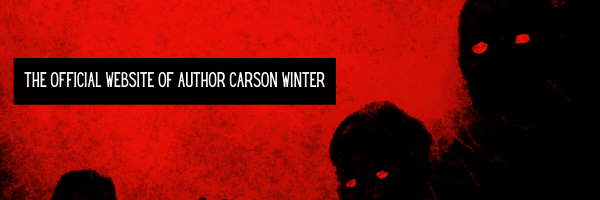
Nogle’s Beulah is about people as much as it’s about ghosts
Horror, ultimately, is about people. The knife is meaningless unless it’s got a body to cut to ribbons. The monster isn’t scary without someone to chase. The universe isn’t cold and uncaring without someone who desperately wants it to be the opposite. When talking about horror—where it’s gone and where it’s going—it’s important to remember the lens through which we view it. Because, after all, we are the lens.
Christi Nogle’s Beulah understands this better than most. Here we have a debut novel as steeped in people as it is in ghosts (although it has plenty of both). It’s a quiet book of big emotions, disenchantment, and mental illness—but most of all, it’s a story about people. People fighting, loving, excusing, and of course, coming of age. Some will say this is not a horror novel at all, or give it a blue-ribbon genre title like “elevated horror” or “post horror.” Whatever you want to call it, Beulah is an engaging tale filled with vividly drawn characters and heart-wrenching sadness.
Beulah takes place in the small town of Beulah, Idaho, where Georgie, her mother, and two sisters have come to help an old friend renovate a house. While this may sound like a typical set-up, and could send the dominoes falling toward a familiar outcome (house is haunted, family is scared, horror ensues), Nogle centers the novel’s journey on Georgie and her internal perspective. Told in sharply written first-person, Georgie isn’t just the main character, she’s truly the heart of the novel—even more so than the titular Beulah.
In getting to know Georgie, who is blessed/cursed with the ability to see ghosts (another horror trope that doesn’t go quite where you expect), I was reminded me of SP Miskowski’s immediate and voicey I Wish I Was Like You—another novel that featured a difficult young woman coming to grips with a setting-as-character.
And while it may not sound like a selling point, Georgie’s frustrating nature is really one of Beulah’s greatest strengths. In many ways, the character is all the more poignantly depicted for her own flaws. There’s no getting around it—Georgie is a piece of work. She’s detached, depressed, sometimes oblivious to others emotions, sometimes precisely empathic; she’s self-centered, lazy, and at other times demonstrably kind and caring to her family. Frankly, she’s a mess. But, this mess at the center of the story is what makes for such a lucid coming of age tale. Georgie is a fuck-up, but we’re rooting for her the whole time to finally figure it out.
It bears mentioning though that Georgie isn’t the only character here. Her mother, sisters, and sort-of love interests are depicted with an eye for detail and truth. Still, it is Beulah—the town—that stays with me. Nogle expertly captures the feel of small town Idaho as a place stuck out of time. As a former Idahoan, there’s a sense of remoteness and disconnect living in the Gem State that lends itself well to a novel about ghosts. In many ways, Georgie and her family, in coming to Beulah, mirror the specters that toil in oblivion beneath their noses.
Beulah has a lot of masterful character work, but it is still important to remember that this is a novel of supernatural horror. And just as it delivers on selling us its cast and setting, so too does it create an interesting and unsettling depiction of the afterlife. The ghosts in Beulah are strange. They flit at the corners of your vision, they appear as shadows, they get locked into the labor of their lives. They sometimes interact with people, but when they do, it’s an absent-minded parody of human connection. In Beulah, ghosts are vaguely sentient patterns. It seems fitting then, that Georgie, as she comes of age, must decide which of her patterns are most important to break for her to grow.
Beulah is a confident debut novel from a powerhouse of a writer. Nogle creates a world for us to live in and populates it with people torn from the periphery of our own lives. The people are not perfect, but they feel real. And when horror comes for them—as it comes for us all, eventually—their shudders and shakes might as well be our own.
